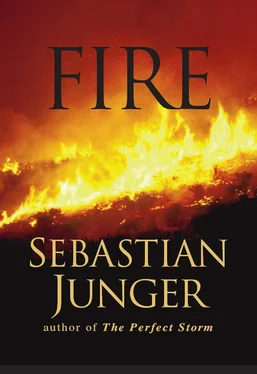“One, two, three, four, five.”
“The first message is…from your families. Quote, ‘We are all staying together in Delhi and we all send our love and prayers. We are helping each other. Be as strong as we are.’ Over.”
“Okay, I have the message.”
“Now, Don Hutchings, there [is] a set of questions for you. You’ll have to provide me with the answers because I don’t know them…. Am I clear to you?”
“Yes.”
“What are the names of your pets? I repeat, what are the names of your pets?”
“My pets’ names are Bodie, B-O-D-I-E, and Homer.”
Hutchings’s existence was confirmed. The negotiator continued with personal questions for each of the other hostages and then signed off, telling Hutchings to “have faith in God and strength in yourself.” Within days of the radio interview, Al Faran began renewing their threats to kill the hostages, and their tone was so antagonistic that members of G-3 privately admitted that they thought the odds of the hostages’ surviving were only fifty-fifty. September crawled by, and then October, and the winter snows started to come to Kashmir. Reports of frostbite and illness among the hostages began to drift in. And then, on December 4, the inevitable happened: Al Faran ran into the Indian Army.
The guerrillas were passing through the village of Mominabad early in the morning when a patrol of a dozen Indian soldiers spotted them from the marketplace and someone opened fire. According to Indian military officials, there were no hostages with them—they were presumably being held nearby—but that’s impossible to confirm. The militants jumped a barbed-wire fence, splashed across a shallow stream, and then ran through a patch of scrub willow. They headed across a dry rice paddy, machine-gun fire hammering behind them, the villagers diving into their mud houses and slamming their doors shut. The militants made it across the paddy and took a stand farther upriver, near the small village of Dubrin, and the Indian patrol called for reinforcements. Soon dozens of troops were firing on the rebels, who held off the army for six hours until dark fell, when they left their dead and ran.
Turki was killed, along with four other Al Faranis. Three days after the gunfight the British ambassador in Delhi received a phone call from a man claiming to be with Al Faran and offering new terms of release: $1.2 million in ransom and safe passage to Pakistan. “You know, you know, we have been treating [the hostages] as our guests for the last five months plus,” he complained. “You can expect that we have spent lots of money.” The ambassador demanded proof that the hostages were still alive, but the man never called again.
And that was it. From time to time, over the next few months, nomads reported seeing the hostages up in the mountains, but those reports came to be suspect when it was revealed that the nomads were making money both as paid police informants and as messengers and suppliers for the kidnappers. In April 1996 a captured HUA militant claimed that the hostages had been executed about a week after the fight at Dubrin, in retaliation for Turki’s death, and that the bodies were buried in a village called Magam. The Indian Army scoured the woods and fields around Magam for weeks without finding anything.
“You want to be optimistic, your heart says be optimistic, but your mind says, ‘Sucker, you’ve gotten your hopes up before,’” says Schelly. “We had a full moon right before Id-ul-Fitr [a feast day at the end of Ramadan], and a friend of Don’s said, ‘This is the last full moon that’s going to pass before Don comes back.’ I was so convinced they would release him for Id-ul-Fitr that I packed my bags and got my hair cut. At one point I had to pull the car over on the way home from work and throw up, I was so worked up.”
Id-ul-Fitr came and went, as did the one-year anniversary of the kidnappings, without any word from Al Faran. Reports continued to trickle in from the nomads, but nothing could be confirmed. Schelly went back to Kashmir in the summer of 1996 to meet with HUA leaders, and she returned there a few months later to start up a reward program. Announcements in local newspapers, on local radio shows, and even on the backs of matchbooks offered money to anyone who would come forward with information. The U.S. government also offered a reward, and India followed suit.
“It’s very difficult to say if the program will be successful,” says Len Scensny of the State Department’s South Asia bureau. “We haven’t had verifiable contact with the hostages in over a year, and we have no current information on their well-being. It’s been an ongoing subject of discussion with very senior officials in both India and Pakistan.”
Meanwhile, John Childs has resumed his life in America—working, jogging, spending time with his daughters. People who know Childs have made joking references to Rambo, which bothers him, and some even ask why he didn’t help the others escape. It’s a question that still troubles him. “I rationalize it and say, ‘I couldn’t have done it any other way,’ but without having done it another way I’ll never know,” he says. “I ask myself constantly, ‘Should I have done anything different?’ Sitting here in my office it’s one thing, but when I actually made the decision to escape, I was tired, I was injured, I was miserable, I was terrified. It revealed something about my character, and I’m not even sure if I’m proud of it or not.”
And Jane Schelly’s hopes are slowly waning. While promoting the reward program in the fall of 1996, she decided to visit the village of Seer, where Ostro’s headless body had been found. She talked with the villagers through an interpreter and then walked along a dirt path by the irrigation ditch where, among the rice paddies, two women had spotted the body a year earlier. “It was so incongruous,” says Schelly. “The village was on a little pass, and when I was there, everyone was harvesting the rice. There [were] stacks of rice straw in the fields and mountain peaks in the distance. It was probably one of the most beautiful spots I’ve ever seen in my life.”
If Don Hutchings is still alive, he’s probably looking out at a scene very much like that one: iron gray mountains, a scattering of mud huts, and a dozen villagers cutting their way across the rice paddies at dusk. One of them, undoubtedly, knows Hutchings is there; one of them, undoubtedly, wonders if telling the army would put his family in jeopardy. He decides to say nothing. And Don Hutchings, peering out through a chink in the wall, watches night come sweeping up his valley one more time.
KOSOVO’S VALLEY OF DEATH
1998
It wasn’t much of a town, Prekaz, just a dozen or so farmhouses strung along a dirt road that ran between some low brown hills. In the distance were the mountains of Albania, and all around were the dead winter fields of Kosovo. The houses had red tile roofs, thick whitewashed walls, and traditional courtyards—a defensive layout that probably hadn’t changed much in the past eight hundred years. The pastures began at the road and stretched up to the crests of the hills before ending in ugly swatches of scrub oak. It was the kind of scrub oak that would whip you in the face if you tried to run through it. It was the kind of scrub oak that you could disappear into.
Before dawn on March 5, 1998, hundreds of Serb special police took up positions on the hilltops around Prekaz. There were mortar emplacements, tanks, heavy artillery, 20-mm cannon, and dozens of armored personnel carriers mounted with heavy machine guns. It was the first premeditated military assault by a European government against its own citizens since Nicolae Ceauşescu unleashed his Romanian security police in 1989—and that was basically the last spasm of a dying government. Before that you’d have to go back to the Nazis. Kosovo, a province of Serbia, is only two hundred miles from Italy; tourists come to ski in the winter. There hadn’t been a war here since 1945. And now one of its towns was about to get scraped off the map.
Читать дальше












